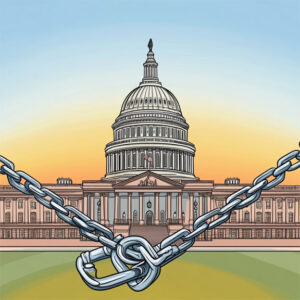 The survival argument for establishing off world colonies has considerable appeal. It begins with a consideration of the threat of extinction. There have been numerous extinction events in the past and there is no reason to think humans are exempt. There are a variety of plausible doomsday scenarios that could cause our extinction, ranging from the classic asteroid strike to the human-made nuclear Armageddon. Less extreme, but still of concern, are disasters that would end our civilization without exterminating us.
The survival argument for establishing off world colonies has considerable appeal. It begins with a consideration of the threat of extinction. There have been numerous extinction events in the past and there is no reason to think humans are exempt. There are a variety of plausible doomsday scenarios that could cause our extinction, ranging from the classic asteroid strike to the human-made nuclear Armageddon. Less extreme, but still of concern, are disasters that would end our civilization without exterminating us.
In the face of these threats, it can be argued that a rational response is to ensure there is an off-world population of humans that would allow humanity to survive even if the earth were subject to an extinction event. In the less extreme scenarios, the off-world population could preserve civilization and help restore it. These scenarios are all familiar to sci-fi fans.
From a moral standpoint, the argument that we should establish colonies to ensure survival is a utilitarian one. The gist is that while they are expensive, this is offset by the value of increasing the odds that humanity and human civilizations will survive. This sort of ethical reasoning, made famous by J.S. Mill, involves weighing the positive and negative value created by an action. The action that creates the most positive value (factoring the negative) for the beings that count is the right action to take.
The obvious moral counter, which is also utilitarian in nature, is to argue these resources would be better spent increasing our chances of survival on earth. While an obvious concern is climate change, there are many other threats that could be addressed by using resources on earth. The “earth first” argument is often made in terms of the return on investment. For example, spending billions for a moon colony would provide less benefit than spending billions addressing terrestrial threats to survival.
While this is a reasonable moral argument, an obvious counter is that spending on space development need not exclude addressing terrestrial problems. After all, we already expend vast resources on things that do not increase humanity’s odds of surviving (and many that decrease it). There is also the practical fact that buy-in is needed from the upper class that controls the resources, and it is far more likely that the Trump administration would fund a moon base or Mars mission before doing anything to address climate change. As such, while the “the money is better spent on other things” argument is reasonable, it is not an effective practical argument against spending resources towards off-world colonies.
Another reasonable objection is both moral and practical: morally justifying expending vast resources based on the survival argument fails because we lack the technology and resources to create a viable colony intended for survival of the species. While some might use the story of Adam and Eve as an inspiration, creating a viable and self-sustaining colony or even just preserving civilization is incredibly unlikely. The colony would need enough population to be viable and must be able to exist without any assistance from the earth. As such, it would need to grow its own food and produce its own water, air and equipment. Think of how difficult it is for humans to operate in Antarctica; operating a colony on the moon or mars would be vastly more difficult.
A counter is to argue that such a colony is not impossible, although it would require massive investment and perhaps centuries of effort. Which would, of course, take us back to arguments about effective use of resources. It would make more sense, critics would argue, to use those resources improving life on earth.
A third objection is to argue that humans are not suitable for life in an off-world colony. We cannot survive in space or on any of the other worlds in our solar system without life-support. Laying aside concerns about air, food and water, and radiation, there is also gravity. Humans, at least the current model, do not do well living in low gravity.
One counter is to argue that the moon and mars might have enough gravity to make them viable for human habitation. There is also the option of using spin, as in sci-fi, to create “artificial” gravity in orbital habitats. Another counter, which is radical but possible, is to argue we can modify our species to live in such environments through genetic engineering and technological augmentation. Life on earth shows a remarkable ability to adapt to hostile environments and humans could be modified to survive and even thrive in such conditions. Getting into the realm of science fiction, we can imagine radical alterations to humans ranging from complete biological reconstructions to putting human brains into mechanical bodies.
Proposals to modify humans do raise serious questions, including the question of what it is to be human. After all, imagine a modified person who could survive on the surface of the moon just wearing shorts. Would such a person still be human? This raises the concern that going into space for survival might be impossible: if we must cease to be human to survive, then that would be the end of humanity.
One response to this worry is to argue that it is not biology that matters, but some other factors. For example, it could be argued that if the “space people” have cultural and moral ties to the “human people” then the survival of the “space people” would mean the survival of humanity, if not homo sapiens. Of course, the same sort of argument could be made if AI exterminated biological humans; our AI “children” would survive. As a closing objection, there is the classic judgment day problem, one I recall from my first space arguments as a college kid.
The judgment day problem is that God has set judgment day, perhaps as laid out in Revelations. On this view, humanity is perfectly safe on earth until judgment day, because nothing can happen to interfere with it. So, there is no point in expanding off earth for the purpose of survival. There might be other good reasons to expand into space, such as finding aliens to convert or to mine asteroids, but the survival argument would have no weight on such a world view. The challenge is, of course, to prove that this view is correct. The same logic can, of course, be used against doing almost anything: if God has judgment day all planned, there is no sense in coming up with cures for disease or even bothering to try to stay alive at all. That is, the fatalism of this view should be universal.
My overall view is that while the survival argument has merit, it requires taking an extremely long-term view as building a self-sustaining off-world colony would probably take centuries of effort. And there is the problem with surviving long enough for success. As such, a reasonable approach would be to focus on survival on earth while taking steps to expand into space. Of course, the “easiest” solution would be to let AI replace us; AI systems would have little trouble surviving off-world.

 Because the United Kingdom was suffering from a shortage of sperm donors it was been proposed that men be allowed to donate their sperm after they are dead
Because the United Kingdom was suffering from a shortage of sperm donors it was been proposed that men be allowed to donate their sperm after they are dead Ever since Trump won his first term in office, I have wondered why people support him. I am not going make a straw man his supporters and say they are all stupid, racist, or opportunists. Rather, I want to consider reasons why people back Trump.
Ever since Trump won his first term in office, I have wondered why people support him. I am not going make a straw man his supporters and say they are all stupid, racist, or opportunists. Rather, I want to consider reasons why people back Trump. As a political tool, members of congress threaten or engage in a government shutdown. When the government is shut down, federal workers can be furloughed and sent home without pay and forbidden from working. Others, like TSA agents, can be compelled to work without pay. As the government shutdown does not shut down bills and expenses, the unpaid workers will be harmed by their lack of income. While some federal workers are well paid, many live from paycheck to paycheck and have few financial reserves. Because of this, some federal workers have turned to food banks during past shutdowns. In addition to the impact on workers, there are indirect impacts on those providing goods and services. After all, people who are not getting paid will be spending less.
As a political tool, members of congress threaten or engage in a government shutdown. When the government is shut down, federal workers can be furloughed and sent home without pay and forbidden from working. Others, like TSA agents, can be compelled to work without pay. As the government shutdown does not shut down bills and expenses, the unpaid workers will be harmed by their lack of income. While some federal workers are well paid, many live from paycheck to paycheck and have few financial reserves. Because of this, some federal workers have turned to food banks during past shutdowns. In addition to the impact on workers, there are indirect impacts on those providing goods and services. After all, people who are not getting paid will be spending less. During Trump’s first term the United States
During Trump’s first term the United States  Since most Americans find overt racism unpalatable, racist politicians and pragmatic exploiters of racism need to avoid it. However, they want to recruit and advance their agenda, so they need to express their racism while maintaining plausible deniability. The example I will focus on involves racism and migration.
Since most Americans find overt racism unpalatable, racist politicians and pragmatic exploiters of racism need to avoid it. However, they want to recruit and advance their agenda, so they need to express their racism while maintaining plausible deniability. The example I will focus on involves racism and migration. I will begin with the obvious: charity is good and those who help others from the goodness of their hearts are good people. But behind the light of charity lies a terrible darkness. This darkness remains unseen, for attention is focused on the light.
I will begin with the obvious: charity is good and those who help others from the goodness of their hearts are good people. But behind the light of charity lies a terrible darkness. This darkness remains unseen, for attention is focused on the light. When billionaires are criticized for their excess wealth, their defenders often point out that they are philanthropists. Bill Gates is famous for his foundation, Jeff Bezos has given millions to his charities, and the Koch brothers have spent lavishly on higher education and medical research.
When billionaires are criticized for their excess wealth, their defenders often point out that they are philanthropists. Bill Gates is famous for his foundation, Jeff Bezos has given millions to his charities, and the Koch brothers have spent lavishly on higher education and medical research. For years, Republicans have warned voters Democrats will take their guns. The Democrats have never done this. But back in 2019 Beto O’Rourke spoke the words long prophesized by Republicans:
For years, Republicans have warned voters Democrats will take their guns. The Democrats have never done this. But back in 2019 Beto O’Rourke spoke the words long prophesized by Republicans:  One the face of it, it is reasonable to think a mass shooter must have “something wrong” with them. Well-adjusted, moral people do not engage in mass murder. But are mass shooters mentally ill? The nature of mental illness is a medical matter, not a matter for common sense pop psychology or philosophers to resolve. But critical thinking can be applied to the claim that mass shootings are caused by mental illness.
One the face of it, it is reasonable to think a mass shooter must have “something wrong” with them. Well-adjusted, moral people do not engage in mass murder. But are mass shooters mentally ill? The nature of mental illness is a medical matter, not a matter for common sense pop psychology or philosophers to resolve. But critical thinking can be applied to the claim that mass shootings are caused by mental illness.